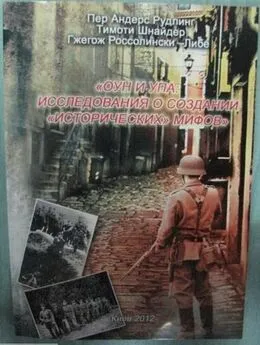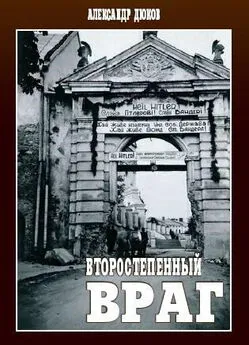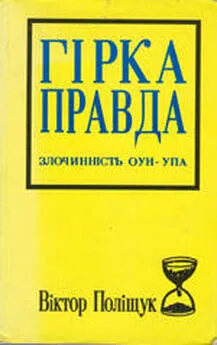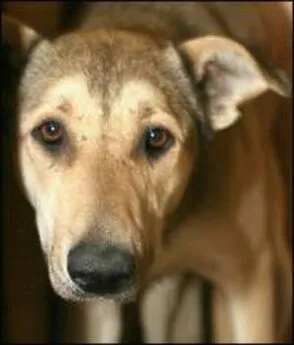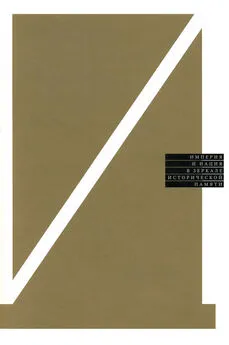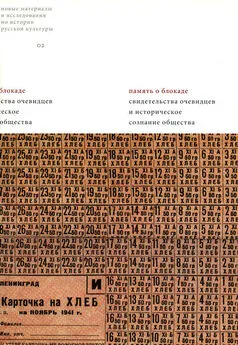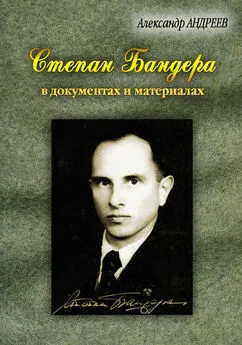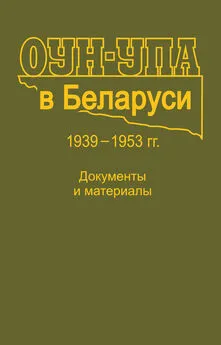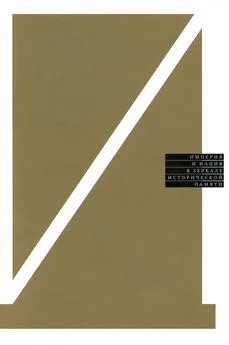Пер Рудлинг - ОУН и УПА: исследования о создании исторических мифов. Сборник статей
- Название:ОУН и УПА: исследования о создании исторических мифов. Сборник статей
- Автор:
- Жанр:
- Издательство:Золотые ворота
- Год:2012
- Город:Киев
- ISBN:978-966-2246-16-2
- Рейтинг:
- Избранное:Добавить в избранное
-
Отзывы:
-
Ваша оценка:
Пер Рудлинг - ОУН и УПА: исследования о создании исторических мифов. Сборник статей краткое содержание
Сборник статей «ОУН и УПА: исследования о создании «исторических» мифов» является вторым изданием в серии «Историческая правда», основанной Международным антифашистским фронтом в 2011 году.
В издании представлены исследования современных западных ученых — Пера Андерса Рудлинга, Тимоти Д. Шнайдера, Гжегожа Россолинского-Либе на тему украинского радикального национализма, фашизма, создания антиисторических мифов вокруг ОУН-УПА, преступлений против человечности, попыток героизации и реабилитации этих организаций и их членов.
Большинство исследований в Украине публикуются впервые.
ОУН и УПА: исследования о создании исторических мифов. Сборник статей - читать онлайн бесплатно полную версию (весь текст целиком)
Интервал:
Закладка:
200
Petro Savaryn (b. 1926) never held an academic position, but was one of the founders of the Canadian Institute of Ukrainian Studies and chancellor of the University of Alberta 1984–87. He also served as president of the World Congress of Free Ukrainians 1983–1987, and the Alberta Progressive Conservative party. He is also active in the society of the veterans of the Waffen-SS Galizien. Petro Savaryn, Z soboiu vzialy Ukrainu: Vid Tarnopillia do Al’berty (Kyiv: KVITs, 2007), 275.
201
Ivan Hryn’okh (1909–1994), veteran and chaplain of the Nachtigall and Schutzmannschaft Battalion 201, worked at the Ukrainian Free University in Munich, as assistant professor 1974–1977, full professor 1978–1990, professor emeritus 1991–1994. Shafoval and Iaremko, Universitas Libera Ucrainensis, 122.
202
Petro Mirchuk (1913–1999) was arrested by the Germans in 1941 and spent the war in internment camps, including Auschwitz. Immediately after the war he was responsible for OUN(b) propaganda in occupied Germany. He was one of Stepan Bandera’s close allies and a stern adherent of totalitarianism. Mirchuk’s writings are representative of the sort of pseudo-scholarship the OUN(b) produced after the war. He received a J.D. in 1941 and a Ph.D. in 1969 from the Ukrainian Free University in Munich, and wrote several widely cited chronicles on the history of the OUN. He combined academic activities with high-ranking positions in the OUN(b). Posivnych, Zhyttia i diial’nist’ Stepana Bandery, 140. Mirchuk was also used as an “expert” for the defense during the OSI hearings on deportation.
203
Markus Huss, “Male Historians in Exile: Constantly Relating to Their Background,” Baltic Worlds 3, no. 1 (2010): 17–18.
204
Some of the more prominent examples are found in the writings of Mykola Riabchuk, according to whom “Ukraine is not just a ‘normal’ nation,” but rather, “a postcolonial country shared near equally by the ‘aboriginal’ and ‘settler’ communities.” Riabchuk juxtaposes the “aboriginal” Ukrainains to the Sioux population with (non-Ukrainian) “settlers” and invokes Hollywood images of Dances with Wolves. Under these conditions, Riabchuk argues that a part “of Bandera’s legacy remains relevant — that of patriotism, national solidarity, self-sacrifi ce, idealistic commitment to common goals and values.” Mykola Riabchuk, “Bandera’s Controversy and Ukraine’s Future,” Russkii vopros, no. 1, 2010: http://www.russkiivopros.com/?pag=one&id=315&kat=9&csl=46#_edn13 (accessed April 28, 2010); idem, “Ukraine: Revisiting a ‘Success Story’?” Transitions Online, issue 10/17/2006: 4. On Riabchuk’s use of postcolonial rhetortic in the service of nationalism, see Rudling, “Iushchenkiv fashyst,” in Amar, Balyns’kyi, and Hrytsak, Strasti za Banderoiu, 254, and Roman Dubasevych, “Dity rozpachu,” zakhid. Net, December 20, 2010: http://zaxid.net/article/82258/ (accessed December 20, 2010).
205
Following president Yushchenko’s designation of Stepan Bandera as Hero of Ukraine in January 2010, CIUS director Zenon Kohut defended Bandera and denied the fascist nature of the OUN. Zenon Kohut, “Ukrains’kyi natsionalizm,” 145–146, and Rudling, “Iushchenkiv fashyst.”
206
Only in the past few years have scholars started to give these institutions serious attention. See, for instance, O’Connor, “The Munich Institute for the Study of the USSR;” Holian, “Anticommunism in the streets”; Julia Delande, “‘Building a Home Abroad’—A Comparative Study of Ukrainain Migration, Immigration Policy and Diaspora Formation in Canada and Germany after the Second World War,” Ph. D. Dissertation, Hamburg University, 2006; Huss, “Male Historians in Exile”; Rossoli#ski-Liebe,“Celebrating Fascism.”
207
Frank Golczewski, “Besprechung,” Jahrbuch für Geschichte Osteuropas, 44, no. 4 (1996): 592 ff, cited in Bruder, “Den ukrainischen Staat,”12.
208
Berkhoff and Carynnyk, “The Organization of Ukrainian Nationalists,” 149; Himka, ”War Criminality,” 11; Bruder, “Den ukrainischen Staat,” 12–13; Krzysztof Lada, “Creative Forgetting: Polish and Ukrainian Historiographies on the Campaign against the Poles in Volhynia during World War II,” Glaukopis, no. 2/3 (2005): 346; Himka, “First Escape: Dealing with the Totalitarian Legacy in the Easrly Postwar Emigration,” paper presented at the Workshop on “National Politics and Population Migrations in Central and Eastern Europe,” Center for Austrian Studies, University of Minnesota, Minneapolis, 7–8 April, 2006, 7; idem, “Central European Diaspora,” 22; Jeffrey Burds, “Access Restrictions in Central European Archives,” round table discussion at the fortieth national convention of the American Association for the Advancement of Slavic Studies, Philadelphia, November 23, 2008.
209
Thus, only in 1996 did a complete version of Stets’ko’s Akt of June 30, 1941, retaining the statement that the Ukrainian state would “cooperate closely” with Nazi Germany, appear in print. Volodymyr Serhiichuk, ed., OUN-UPA v roky viiny: Novi dokumenty i materialy (Kyiv: NAN Ukrainy, 1996), 239–240. Confronted with primary documents that establish the anti-Semitic nature of the OUN, pronationalist historians have sometimes dismissed them as Soviet forgeries. See, for instance, Taras Hunczak, “Problems of Historiograhy: History and Its Sources,” Harvard Ukrainian Studies 25 (2001): 129–142. For a discussion of this, see Himka and Kurylo, “Iak OUN stavylasia do ievreiv?” 253.
210
Burds, “Access Restrictions,” 2008.
211
Himka, “War Criminality,” 9–24; idem, “Central European Diaspora,”17–31; Rudling, “Iushchenkiv fashyst,” 237–309; Rossoli#ski-Liebe, ”Celebrating Fascism.”
212
Lew Shankowsky, “Pro problemu antysemityzmu v Ukraini,” Svoboda, February 3, 1960, cited in Himka, “War Criminality,” 10.
213
Berkhoff and Carynnyk, “The Organization of Ukrainian Nationalists,” 152, citing Bohdan Osadczuk, “Curesy i cymesy,” Zustriczi 9 (1995): 30. Yet, during the war, Osadczuk (1920–2011) published anti-Semitic material in the collaborationist press in occupied Poland. Covering the Ustaše press for Krakivs’ki Visti, Osadczuk reported: “The mass graves in Vinnytsia, Hrvatski Narod states, is new proof of the politics of destruction that the Jews from the Kremlin have conducted among the Ukrainian people. The murdered Ukrainians again throw guilt on Stalin and his Jewish collaborators and summon the world to an implacable struggle against the Jewish-Bolshevik threat, which would like to bring upon Europe the same fate that the defenseless vicitms in Vinnytsia met.” B[ohdan] O[sadchuk], “Kryvava propahanda Ukrainy: Vynnytsia v evropeis’kii presi,” Krakivs’ki visti, August 7, 1943., cited in John-Paul Himka, “Ethnicity and the Reporting of Mass Murder: Krakivs’ki visti, the NKVD Murders of 1941, and the Vinnitsa Exhumation,” paper presented at the University of Alberta Holocaust Workshop, January 14, 2005, 13.
214
Taras Hunczak, “Ukrainian-Jewish Relations during the Soviet and Nazi Occupations,” in Yuri Boshyk, ed., Ukraine during World War II: History and Its Aftermath (Edmonton: CIUS, 1986), 42, 45.
215
One of the initiators of the Waffen-SS division Galizien, Kubijovy% endorsed ethnic cleansing of Ukrainian lands and published anti-Semitic material during the Holocaust. Volodymyr Kubijovye, “Pered maiestatom nepovynnoi krovy,” Krakivs’ki visti, July 8, 1941, cited in John-Paul Himka, “The Reception of the Holocaust in Postcommunist Ukraine,” in Joanna Michlic and John-Paul Himka, eds., Bringing to Light the Dark Past: The Reception of the Holocaust in Postcommununist Europe (forthcoming); John-Paul Himka, “Ethnicity and the Reporting of Mass Murder,” 19; Per A. Rudling, “Organized Anti-Semitism in Contemporary Ukraine: Structure, Infl uence and Ideology,” Canadian Slavonic Papers/Revue canadienne des slavistes 48, nos. 1–2 (March-June 2006): 96.
216
Bohdan Wytwycky, “Anti-Semitism,” in Volodymyr Kubijovye, ed., Encyclopedia of Ukraine (Toronto: CIUS Press 1984), 1: 82. On Wytwycky’s writings on Jews as communists and NKVD men, see Rudling, “Organized Anti-Semitism,” 98–99, n. 81.
217
Petro Mirchuk, My Meetings and Discussions in Israel: Are Ukrainians “traditionally anti- Semites”? (New York: Ukrainian Survivors of the Holocaust, 1982), 121.
218
Bruder, “Den Ukrainischen Staat,” 167, n 69, citing Petro Mirchuk, In the German Mills of Death, 1941–1945, 2d ed. (New York, 1985), 17.
219
Mirchuk habitually refers to Poles as “degenerates,” Jews as blood-suckers, Russians as Mongols and tyrants. Mirchuk, My Meetings and Discussions in Israel, 116, 118, 121, 122. He accused Jews of controlling the U.S. courts. “What is ‘Jewish justice’ doing in American courts? And why ‘Jewish’ and not American justice? Are we a colony of theirs? It’s not enough that our government gives Israel billions of our tax money each year for nothing, and now American courts must yield to Jewish demands?. Goebbels himself wouldn’t have been able to turn the Americans against the Jews the way they did it themselves. I repeat again and again, not as an ‘anti-Semite’ but as your friend: the abuse of your infl uence in America for the purpose of persecuting innocent Ukrainians by accusing them of cooperation with the Germans — is merely sowing the wind. And everyone is familiar with the proverb: ‘Who sows in the wind, reaps the storm!’ Think over this carefully!. I’m not threatening you with pogroms, I’m only warning you. All of those who have come to America from Eastern European counties, occupied by the Bolsheviks, know a great deal about the role of the Jews in the recent history of these lands — a role which, for your own good, it would be better to cover-up before the American public. But with these trials of ‘war criminals’—the so-called murderers of innocent Jews— you’re provoking them to reveal everything incriminating against the Jews. Is this what you want? These East-European émigrés have children and grandchildren, born and raised as American citizens. When you maliciously and groundlessly accuse their forbearers of imaginary crimes — and even generalize the accusation by claiming for example that all Ukrainians ‘are anti-Semites’—then they, in turn, seeking to know the truth, learn from their parents about the role of the Jews in the apparatus of the bloody CheKa, GPU, NKVD, KGB; and they pass on this information to all their American acquaintances, co-workers, professors, journalists, et al. Tell me, do you really want that?” Ibid., 124–127.
220
Mirchuk, My Meetings and Discussions in Israel, 66. (Srul is a derogarory term for Jews.)
221
Orest Subtelny, Ukraine: A History (Toronto: University of Toronto Press, 2000), 489. This view came to have an impact also on Ukraine, as Subtelny’s textbook, in Ukrainian translation, was widely used in Ukraine during the fi rst years of independence. Marples, Heroes and Villains, 7, 23, 40–41.
Читать дальшеИнтервал:
Закладка:
